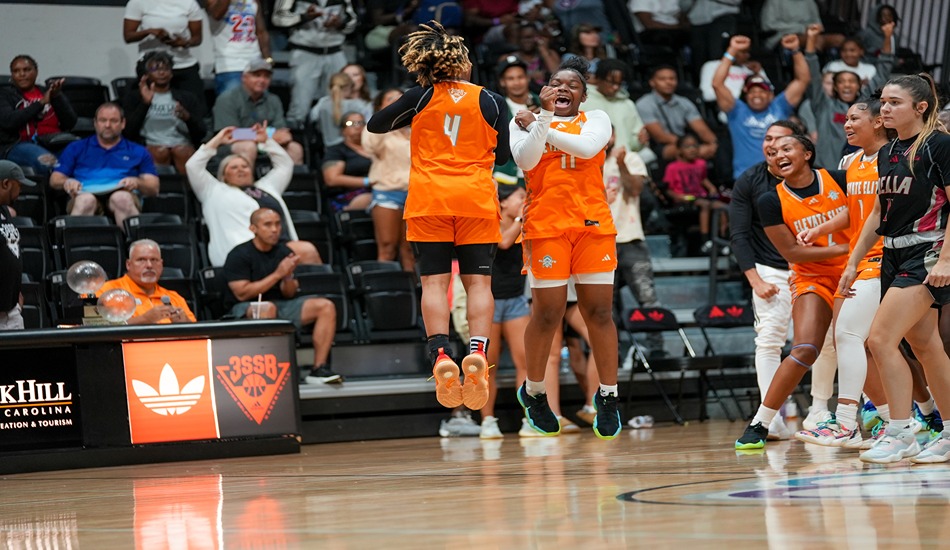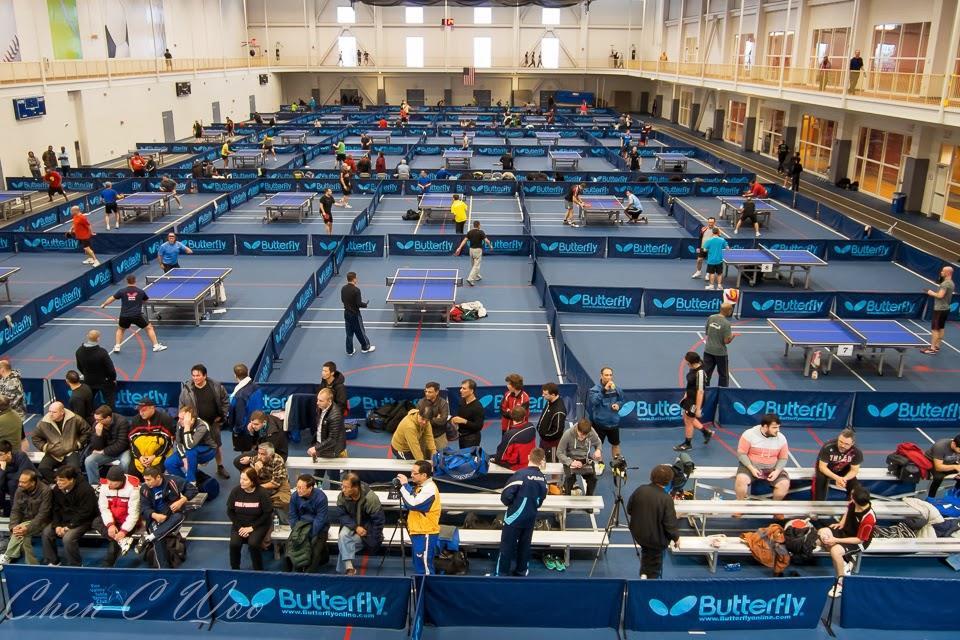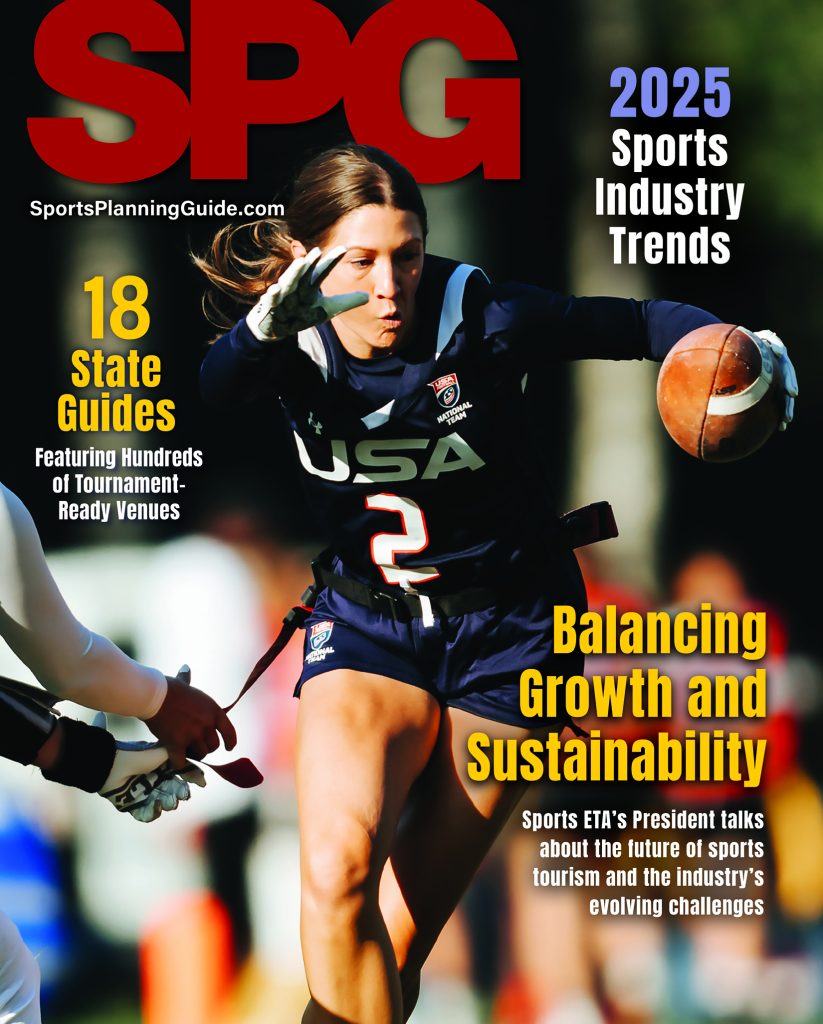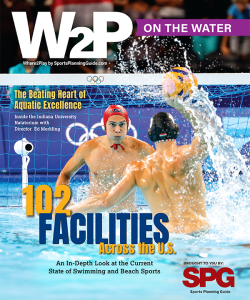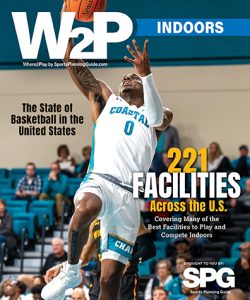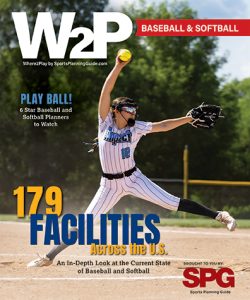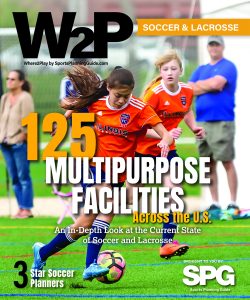Sports event management is, to me, the organization of the myriad details required to conduct a successful competition or tournament. In previous editions of the Sports Planning Guide we have attempted to define many of those details within their respective areas of event responsibility, and provide you with a number of forms and lists that can be formatted to your specific needs.
Okay, this can be a lot of paperwork, and I’ve been reminded of that by my team members at San Antonio Sports. But I also apply to the theory of “being hit by a bus,” and the potential need for someone to pick up the organizational ball and run with it.
This year, my advice for organizing successful events focuses on the following key points designed to inspire the planning efforts of your particular event. This is intended to be a general checklist and it should lead to detailed budgets, equipment lists and timelines. For further information on event management and operations, contact me at billhanson46@gmail.com.
27 TIPS FOR HANDLING ADMINISTRATIVE DUTIES
- The leader of the local organizing committee (LOC) must take responsibility for the entire event, and lead accordingly.
- Put everything in writing.
- Read all contracts thoroughly.
- Compile a contact list for members of the local organizing committee (LOC)
- Key LOC members must have an assistant in the event of illness or emergency.
- Produce an information sheet that gives the pertinent details of the event; date, place, directions, competition schedule, ticket prices, volunteer information, etc.
- Format a timeline for all organizational projects, then track their progress.
- Format both a competition schedule and a logistics schedule of events.
- Format a venue map that identifies all areas of responsibility.
- Hotels can be good partners for annual events that attract out-of-town participants.
- The local convention & visitors bureau can assist with identifying needed hotels with competitive rates, and possibly result in a rebate program. They typically have other services that could enhance the event.
- If the LOC is providing hotel rooms, consider potential expenses for incidentals and the option of turning off room service, telephone and movies (especially for youth participants).
- Make a realistic budget and then determine if the proposed event/tournament is feasible.
- As ticket revenue is one of the important budget items, careful planning is needed to determine prices, sellers and supervisors, freebies and cash security. Do not arbitrarily increase it to balance the budget.
- When discussing value-in-kind items, allow for some budget expense in the event that VIK does not materialize.
- Ensure that well-defined cash controls are in place.
- Printed receipts make it easier to account for petty cash disbursements.
- All LOC members should be surveyed for possible fundraising sources.
- Limit the number and speech length of “talking heads” during ceremonies, particularly a youth event.
- Being last on the event schedule, the awards ceremony can be haphazardly conducted. Give them the planning and conduct that they deserve.
- Devise a good internal communications system (cell phones, radios, etc.) for your LOC, with accountability for the equipment.
- Have contact info with the local phone company/installer if temporary phone and internet lines are used.
- A small phone card ensures that all staff have important cell phone numbers.
- With social media so prevalent, team tournaments especially should establish on-site communications for scheduling changes, etc.
- Getting newspaper coverage for a youth event is tough, but not impossible. For large tournaments the emphasis on local teams or nationally-ranked teams can get results.
- An event that draws media coverage must be prepared to service the media on-site with a contact person, photographer guidelines and possibly work space.
- A transportation program that requires volunteer drivers must include background checks for both driving record and insurance coverage.
9 TIPS FOR WORKING WITH VOLUNTEERS
- A volunteer coordinator must be a good people-person.
- Format all the details of a volunteer program before recruiting for an event to include dress, parking, arrival time, snack available, children, dogs, valuables, etc.
- A volunteer schedule form gives a clear picture of volunteers needed and when.
- Provide volunteers with a general information sheet so that they can easily answer facility and competition questions.
- Avoid putting volunteers in challenging situations with event participants.
- Volunteers can provide good feedback, so collect their suggestions as part of their check-out process.
- A post-event review is critical to the success of future events, evaluating all areas and for improvements.
- A post-event survey to participants can also be helpful when planning for future years.
- Recurring events should build databases of not only participants/teams and spectators but also volunteers.
29 TIPS FOR VENUE SELECTION AND OPERATIONS
- Before signing a facility agreement, ensure you understand the rental rate, additional costs, weather policy, insurance requirements, security needs and the critical incident policy.
- Ensure that your contact(s) with venue management and janitorial are easily accessible.
- Know who will unlock the facility and how to contact them.
- Ensure that wheelchair considerations are given to facility access.
- Be aware of the amount of time needed for venue lights to reach full power.
- Ensure that locker rooms are properly secured.
- Restrooms should be kept clean and stocked.
- Volunteer cleanup of a venue can be an iffy issue, especially at the end of the event, and the LOC could end up paying for it.
- Concessions’ food items will vary according to the event participants, and may also be a good source of meals or snacks for LOC staff and volunteers.
- When seeking outside concession vendors, propose a revenue sharing model or request that the vendor provide complimentary food for LOC staff and volunteers.
- The policy for outside food/beverages/coolers/etc. should be noted on entry forms and signage at parking lots and entry gates.
- Check concessions’ vendors and facility vending machines for potential conflict with event sponsors.
- Events held in warm/hot weather should allow for a participant/spectator demand for ice.
- Compile a (very) detailed equipment & supply List.
- Canvas LOC members for potential value-In-kind donations of equipment.
- Produce a logistics form that identifies the equipment and supplies needed for each area of responsibility.
- Review equipment and supply needs with persons in charge of each area.
- Follow up on all incoming equipment and supplies to ensure timely delivery, and inventory all deliveries for accuracy.
- Equipment and supplies should be ready when staff and volunteers report for work.
- Recover and secure equipment, merchandise, concessions items, signage, etc., immediately upon completion of the event.
- Check equipment before storing: deflate balls to ensure they won’t crack; remove batteries from all electrical equipment (bull horns, radios, flashlights); clean and dry coolers and ice chests; remove tape from signs; check tents for damage and wetness.
- Parking consideration should be given for handicapped, LOC staff, media, VIP, volunteer, buses and emergency vehicles.
- Sound system malfunctions are always embarrassing, so check the system daily.
- Some venues may need designated seating areas for athletes, handicapped, media, photographers, spectators and VIPs, with visible signage.
- Most facilities will have a policy regarding uniformed security, but special consideration should be given to cash areas, parking lots, game officials’ escorts, crowd control and emotional participants.
- Semi-final and final games of any youth or amateur tournament are very emotional, and a visible uniformed officer is recommended.
- Be aware of alcohol use in parking lots.
- A secured storage area should always be provided for multi-day events.
- Place prominent directional and informational signage around and inside the competition venue.
9 TIPS FOR SPONSORSHIP CONSIDERATIONS
- Any and all hospitality areas must have controlled access in order to prevent unauthorized use.
- All-day hospitality areas need special attention in order to stay stocked and clean.
- An Information booth/table will be very helpful to out-of-town participants and their guests.
- Designate and prominently sign a lost & found location.
- An event T-shirt can be a good merchandise item with proper planning and control.
- A good public address announcer helps make an event a success, not only with competition calls but with sponsor acknowledgements, music, sport information and, if necessary, emergency procedures.
- Signs and banners that feature the event logo quickly become souvenir items if easily accessible.
- Sagging banners and crooked signs are eyesores, so check them constantly.
- Plan for high-demand periods at the ticket windows and avoid long lines.
7 TIPS IN CASE OF EMERGENCY
- Consult venue management for their critical incident response policy.
- LOC staff should discuss a critical incident response plan and designate an incident spokesperson.
- Crowd control is a critical part of an emergency incident, and the P.A. announcer must be prepared to give proper instructions.
- Ensure that fire exits are unlocked and clearly visible.
- Ensure that emergency vehicles have quick and easy access to the venue.
- Even the smallest event needs to have a first aid plan to cover participants and spectators, and large events/tournaments should have on-site medical personnel. Venues and sports vary on what’s required for medical coverage.
- Have a form available and write up any incident that could become an insurance and/or legal issue.
7 TIPS FOR COMPETITION CONSIDERATIONS
- An experienced competition director is a must in order to ensure a well-run event.
- Starting the competition “on time” should be a primary objective of every LOC.
- Ensure that competition equipment and floor or field markings comply with the sport specifications.
- Tournaments or other large events should have a Results Board in a central location, but separated from registration and administrative areas.
- Game officials are crucial to an event’s success, and a former official will be a good liaison for handling associated details.
- Paying officials with cash requires a cash payment form that they can sign.
- An event that will be telecast will require close coordination between the LOC and the production company, and some details will affect the actual conduct of the competition.
By Bill Hanson

